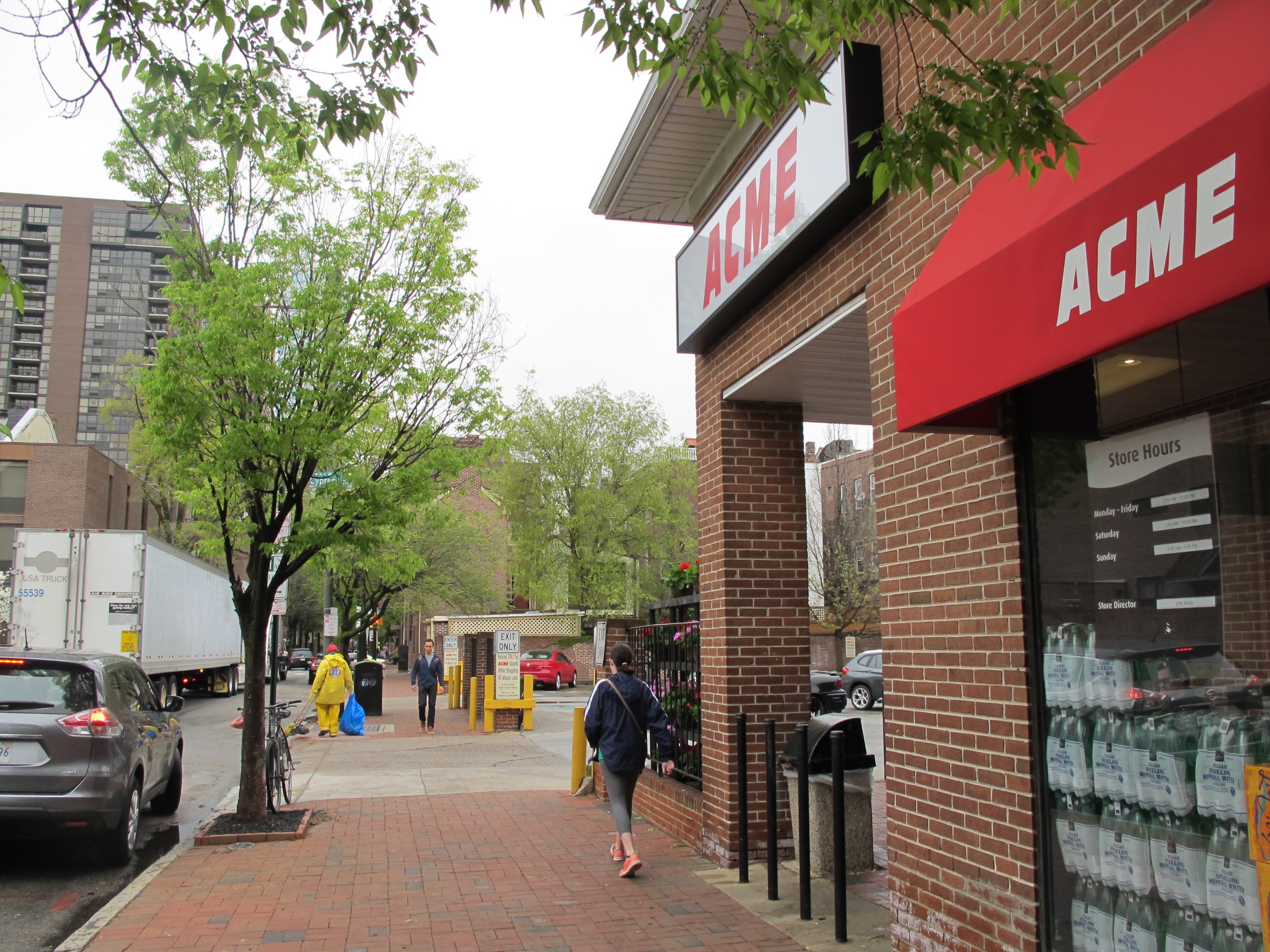Council exempts Society Hill from green roof and grocery zoning bonuses

On Thursday, City Council passed a bill exempting Society Hill from the density bonuses offered in exchange for buildings that include fresh food markets and green roofs, under the zoning code’s Center City overlay.
The bill is a result of a rearguard action by the Society Hill Civic Association, which is seeking to defend the wealthy neighborhood’s sole pocket of retail. The Acme grocery store on 5th Street, between Pine and Spruce, is a neighborhood institution. It is also only one story tall and has its own surface parking lot.
There have been many plans for redevelopment of the property over the years, usually calling for dozens of apartments or condos at the site, along with retail on the ground floor. The latest attempt, announced by the Alterra Property Group in early January, would require the demolition of the market and the construction of a 53-foot tall building with 65 housing units. Some Society Hill residents are disturbed at the proposed building’s height and perceive its density as a threat to the neighborhood character.
The new building would include “fresh food market retail” on its ground floor, in an attempt to capitalize on the density bonus made available to stores using at least 50 percent of display space for fruit and vegetables, a provision crafted to incentivize the availability of healthful foods throughout the city. The proposal also makes use of the green roof bonus, which is meant to manage stormwater and “support living vegetation.”
Neighbors have long been aware that such density bonuses magnify the a threat to their friendly neighborhood grocer. In 2015, they convinced First District Councilman Mark Squilla to exempt the neighborhood from legislation that increased allowable density in commercial areas across Center City. In September, Squilla introduced legislation to exempt the “Society Hill area”—bounded by Walnut Street, 8th Street, Lombard Street, and the Delaware River—from the density bonus for green roofs.
The bill lay fallow for many months until Squilla resurrected it in March, following the late January revelation about the Alterra Group’s new plans for the grocery store site. It was then amended on April 3, which is when the exemption for the fresh food market got added as well.
“The residents believe that the Acme development, although by right, was using bonuses that didn’t fit the model, from the historic perspective,” said Squilla in an interview after council passed the bill. He said that the neighborhood groups hoped the legislation would be a means of preventing the property from being developed.
Asked why the bill hadn’t moved for so long, Squilla admitted that the Planning Commission harbors numerous concerns about the legislation. In particular, they didn’t care for the idea of carving exemptions out of the zoning code for individual neighborhoods.
“Planning doesn’t think we should do it this way,” said Squilla. “They think there should be an overlay or some sort of better policy in place so it’s not confusing for the developers or the community. We think maybe in the future we will have some type of overlay for Society Hill.”
But as Jared Brey chronicled last year, Society Hill suffers from the kind of post war planning that professed a total faith in the separation of uses. Commercial, residential, and industrial should never meet, the idea went, and designers made sure they would not do so in this newly posh urban renewal neighborhood.
Today, as one of the richest and most influential neighborhoods in the city, Society Hill’s community groups have defended the neighborhood from change of any kind. And they won’t let a few density bonuses get in the way of that mission.
WHYY is your source for fact-based, in-depth journalism and information. As a nonprofit organization, we rely on financial support from readers like you. Please give today.




